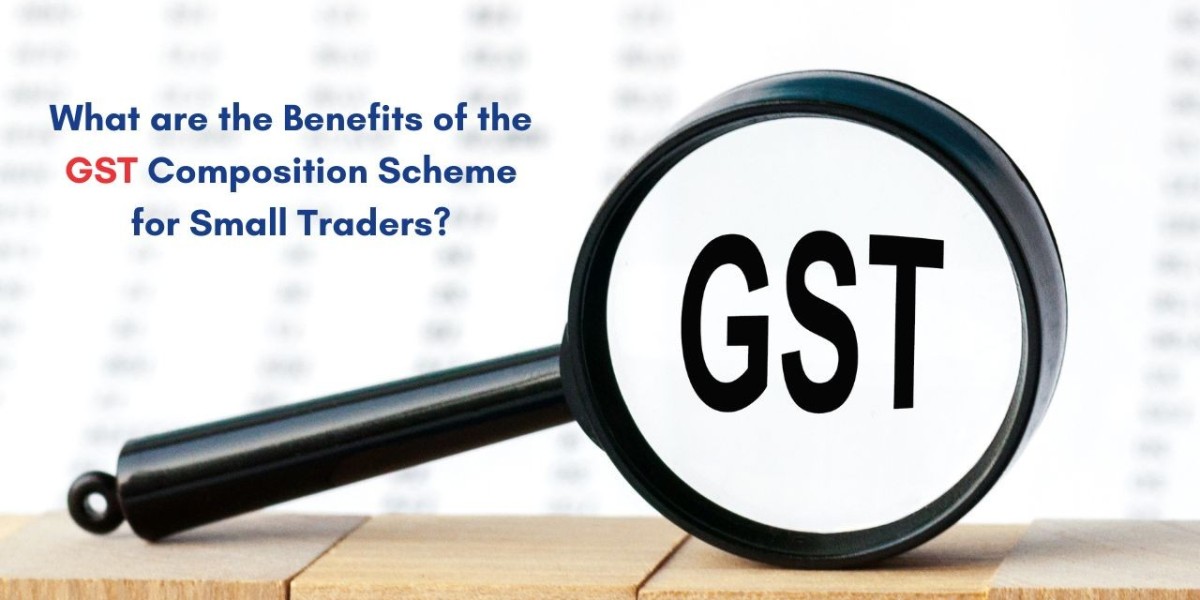Introduction
The Goods and Services Tax (GST) in India revolutionized the country’s indirect taxation system by merging various state and central taxes into one. This unified tax structure simplified the compliance requirements for businesses, but smaller traders often found the procedural and financial burden of full GST compliance overwhelming. To address this issue, the government introduced the GST Composition Scheme, a simplified tax regime aimed at reducing the complexity for small traders and businesses.
Under this scheme, small businesses with a turnover of up to Rs. 1.5 crores can opt for a simplified tax structure. Instead of charging GST at regular rates and filing detailed returns, these businesses pay a lower, fixed rate of tax based on their turnover and follow a simplified GST return filing process. For small traders, the scheme offers numerous benefits, particularly when it comes to easing compliance, reducing costs, and ensuring better cash flow management.
Simplified GST Compliance
One of the primary advantages of the GST Composition Scheme is the simplicity it offers in complying with GST regulations. Businesses registered under the regular GST regime need to maintain detailed records, charge GST at applicable rates, and file multiple returns, including GSTR-1, GSTR-3B, and GSTR-9 annually. However, under the GST Composition Scheme, businesses are required to file only one quarterly return in the form of GSTR-4.
This simplified GST return filing process reduces the burden of paperwork and compliance on small traders. For businesses that may not have the resources to hire full-time accountants or tax professionals, this ease of compliance is a significant benefit. GST registration services often help traders understand the scheme and guide them through the process of switching to the composition scheme, ensuring they comply with all regulations without unnecessary complexity.
Lower Tax Rates
One of the most attractive features of the GST Composition Scheme is the lower tax rate it offers. For manufacturers and traders, the tax rate under the scheme is 1% of turnover, while for restaurants, it is 5%. These reduced rates are particularly beneficial for small traders who otherwise would have to charge regular GST rates, which can range from 5% to 28%, depending on the goods or services they provide.
By opting for the composition scheme, small traders can offer their goods at more competitive prices, as they don't need to factor in high GST rates in their pricing structure. This benefit directly improves the profitability of small businesses, allowing them to maintain a leaner pricing strategy while still adhering to GST regulations.
Simplified GST Return Filing
Filing regular GST returns can be a tedious and time-consuming process, involving the reconciliation of invoices, filing multiple returns every month, and ensuring compliance with all tax provisions. The GST Composition Scheme simplifies this process by allowing small traders to file a consolidated quarterly return, as opposed to the multiple returns required under the regular scheme.
The GST return filing under the composition scheme is designed to be simple and hassle-free. Small traders are only required to provide details of their quarterly turnover and pay tax based on the applicable rate. This streamlining of the GST return filing process ensures that small businesses spend less time on compliance and more time focusing on their core business activities. Moreover, with the availability of various GST registration services, small traders can seek professional help to handle their return filing, further reducing their administrative burden.
Enhanced Cash Flow Management
For small traders, managing cash flow efficiently is critical to business success. Under the regular GST scheme, businesses must charge GST on every invoice and then claim input tax credits. However, under the composition scheme, traders pay a lower fixed tax on their turnover, simplifying their cash flow management.
Because composition scheme traders cannot claim input tax credits, they also don't need to worry about the reconciliation of purchases and sales concerning GST credits. This results in smoother cash flow, as they can focus on turnover rather than dealing with complexities related to tax credits. Businesses can better manage their expenses without the pressure of setting aside large sums for GST payments.
Exemption from Tax Deducted at Source (TDS)
Small businesses often struggle with tax deductions made by other businesses they work with. In many cases, larger companies deduct tax at source (TDS) on payments made to small traders, which can impact their cash flow. One of the significant advantages of the GST Composition Scheme is that businesses under this scheme are exempt from TDS Return Filing, which is otherwise a requirement for larger companies and businesses under the regular GST system.
While regular taxpayers must comply with both GST return filing and TDS Return Filing regulations, small traders under the composition scheme are spared this additional compliance burden. Moreover, if traders have to file TDS returns for other purposes, such as employee salaries, they can easily learn how to file TDS returns online using simplified platforms or seek assistance from professional tax services.
Reduced Professional Tax Burden
For traders operating in states where professional tax is applicable, the GST Composition Scheme does not affect their professional tax obligations. However, small traders who need to register for professional tax or obtain a professional tax registration certificate may find it beneficial to streamline their tax compliance efforts under one umbrella.
Professional tax registration is mandatory for businesses in certain states, and obtaining a professional tax registration certificate is an essential step in complying with state tax laws. By opting for the composition scheme, traders can reduce their overall tax compliance burden, making it easier to manage both their GST obligations and professional tax registration requirements.
Lower Administrative Costs
The simplified nature of the GST Composition Scheme helps reduce the administrative costs associated with tax compliance. In the regular GST regime, businesses must invest in accounting software, hire professional tax consultants, and maintain extensive records to stay compliant with GST laws. The composition scheme significantly lowers these costs by reducing the need for detailed record-keeping and complex tax filings.
Since small traders can file quarterly returns and pay tax at a lower rate, they can manage their tax obligations without requiring specialized accounting expertise. Many GST registration services offer affordable solutions to help businesses with registration and return filing, ensuring that small traders can maintain compliance without incurring hefty administrative expenses.
Flexibility in Managing Business Growth
While the GST Composition Scheme is designed for small traders, businesses that experience growth and exceed the turnover threshold of Rs. 1.5 crores can switch to the regular GST scheme without difficulty. This flexibility allows small businesses to focus on scaling their operations without worrying about the complexities of tax compliance until they reach a certain size.
For traders just starting, the composition scheme provides an excellent stepping stone for future growth. With reduced compliance and tax burdens, they can concentrate on expanding their business, and when they eventually graduate to the regular GST regime, they can do so seamlessly. GST registration services also offer support to traders who want to switch between the composition and regular schemes, ensuring they remain compliant as their business grows.
Conclusion
The GST Composition Scheme provides many benefits to small traders, from simplified compliance and lower tax rates to better cash flow management and reduced administrative costs. By opting for the composition scheme, small businesses can streamline their tax obligations and focus on growth without being bogged down by the complexities of the regular GST regime.
With the support of GST registration services and professional tax experts, traders can easily manage the transition to the composition scheme, ensuring they take full advantage of the benefits of GST registration while maintaining compliance with India’s tax laws. Moreover, the simplified GST return filing process and exemption from TDS requirements make it an attractive option for small businesses looking to reduce their tax burden and improve their profitability.
Understanding how to file TDS returns online, maintaining a professional tax registration certificate, and staying informed about GST registration requirements all contribute to the smooth functioning of a small business. As the Indian taxation system continues to evolve, the GST Composition Scheme remains a valuable tool for small traders seeking a simplified and cost-effective tax solution.

![Fire-Resistant Hydraulic Fluid Market [New Report] By Types and Application Overview by 2031](https://insta.tel/upload/photos/2024/10/qNc9uc63TvecIPcELRaK_29_83754873de38a24552144d1206d7343f_image.jpg)

